ArgoCD
 Dharmendra Chourasiya
Dharmendra Chourasiya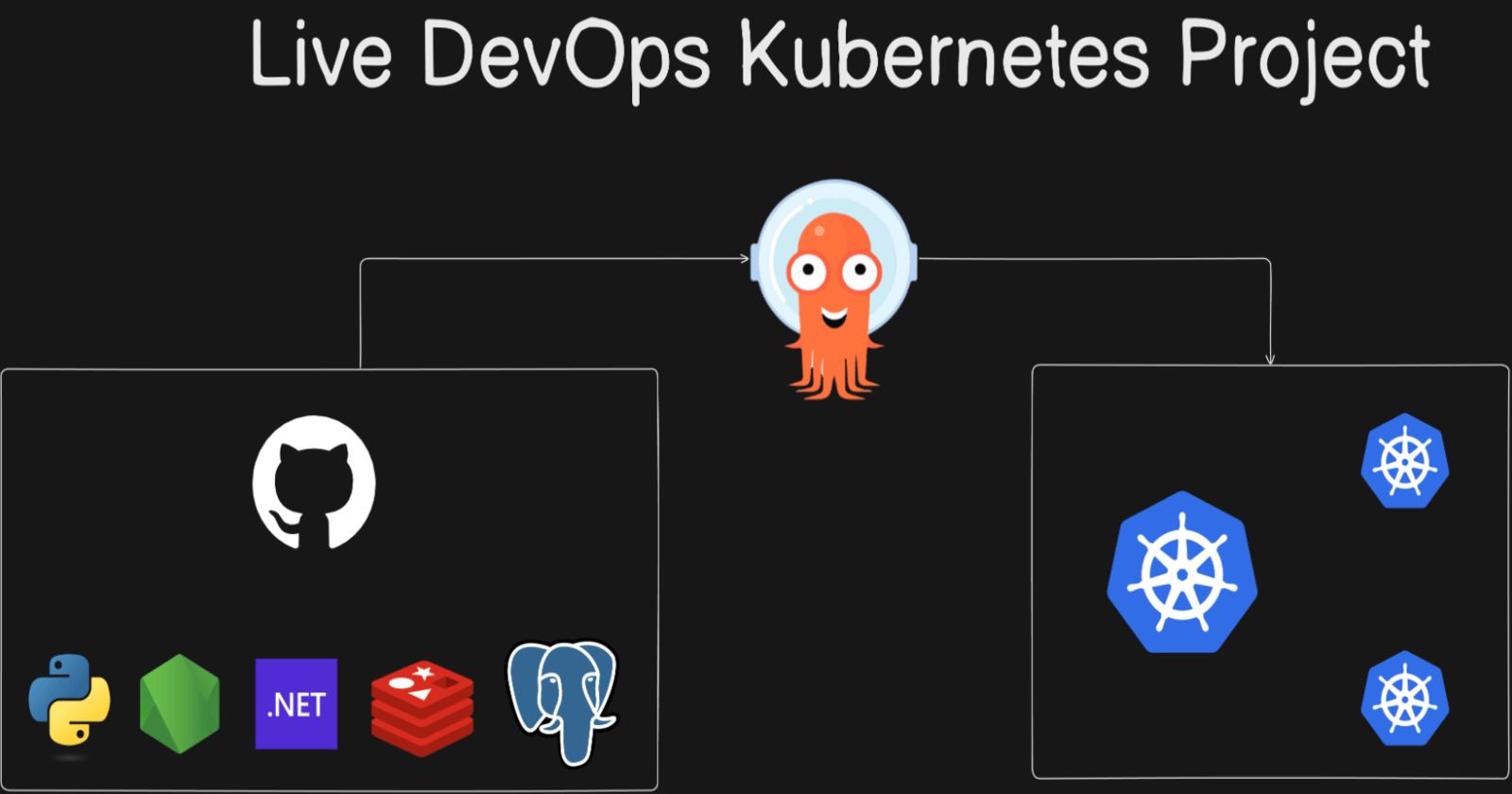
Reference - YT video
https://www.youtube.com/watch?v=Kbvch_swZWA&t=608s
Prerequisites:
→ create the ec2 instance with t2.medium.
→ connect via a ssh
then follow the steps below
install the docker
sudo apt-get install docker.io
docker --version
sudo usermod -aG docker $USER && newgrp docker
follow this GitHub repo → https://github.com/Dharmendra-Chourasiya/k8s-kind-voting-app.git
→ create a folder like - k8s

→ Install the kind cluster using script mention in the repository
install_kind.sh
#!/bin/bash
# For AMD64 / x86_64
[ $(uname -m) = x86_64 ] && curl -Lo ./kind https://kind.sigs.k8s.io/dl/v0.20.0/kind-linux-amd64
chmod +x ./kind
sudo cp ./kind /usr/local/bin/kind
rm -rf kind
chmod +x install_kind.sh
./install_kind.sh
kind —version
→ Create a 3-node Kubernetes cluster using Kind:
create the config.yml and run this below command to apply the changes or to create the master and worker node .
config.yml
kind: Cluster
apiVersion: kind.x-k8s.io/v1alpha4
nodes:
- role: control-plane
image: kindest/node:v1.30.0
- role: worker
image: kindest/node:v1.30.0
- role: worker
image: kindest/node:v1.30.0
kind create cluster --config=config.yml
→ Install the kubectl command line tool
- install_kubectl.sh
#!/bin/bash
# Variables
VERSION="v1.30.0"
URL="https://dl.k8s.io/release/${VERSION}/bin/linux/amd64/kubectl"
INSTALL_DIR="/usr/local/bin"
# Download and install kubectl
curl -LO "$URL"
chmod +x kubectl
sudo mv kubectl $INSTALL_DIR/
kubectl version --client
# Clean up
rm -f kubectl
echo "kubectl installation complete."
chmod +x install_kubectl.sh
Argocd Setup
→ kubectl create ns argocd
→ kubectl apply -n argocd -f https://raw.githubusercontent.com/argoproj/argo-cd/stable/manifests/install.yaml
kubectl get pods -n argocd
kubectl get svc -n argocd
Expose Argo CD server using NodePort:
kubectl patch svc argocd-server -n argocd -p '{"spec": {"type": "NodePort"}}'
→ kubectl port-forward -n argocd service/argocd-server 8443:443 --address=0.0.0.0 &
ubuntu@ip-172-31-36-147:~/k8s$ Forwarding from 127.0.0.1:8443 -> 8080
Forwarding from [::1]:8443 -> 8080
→ access the Argocd server on this → 43.205.114.202:8443
Retrieve argocd password
kubectl get secret -n argocd argocd-initial-admin-secret -o jsonpath="{.data.password}" | base64 -d && echo
Now create the new app
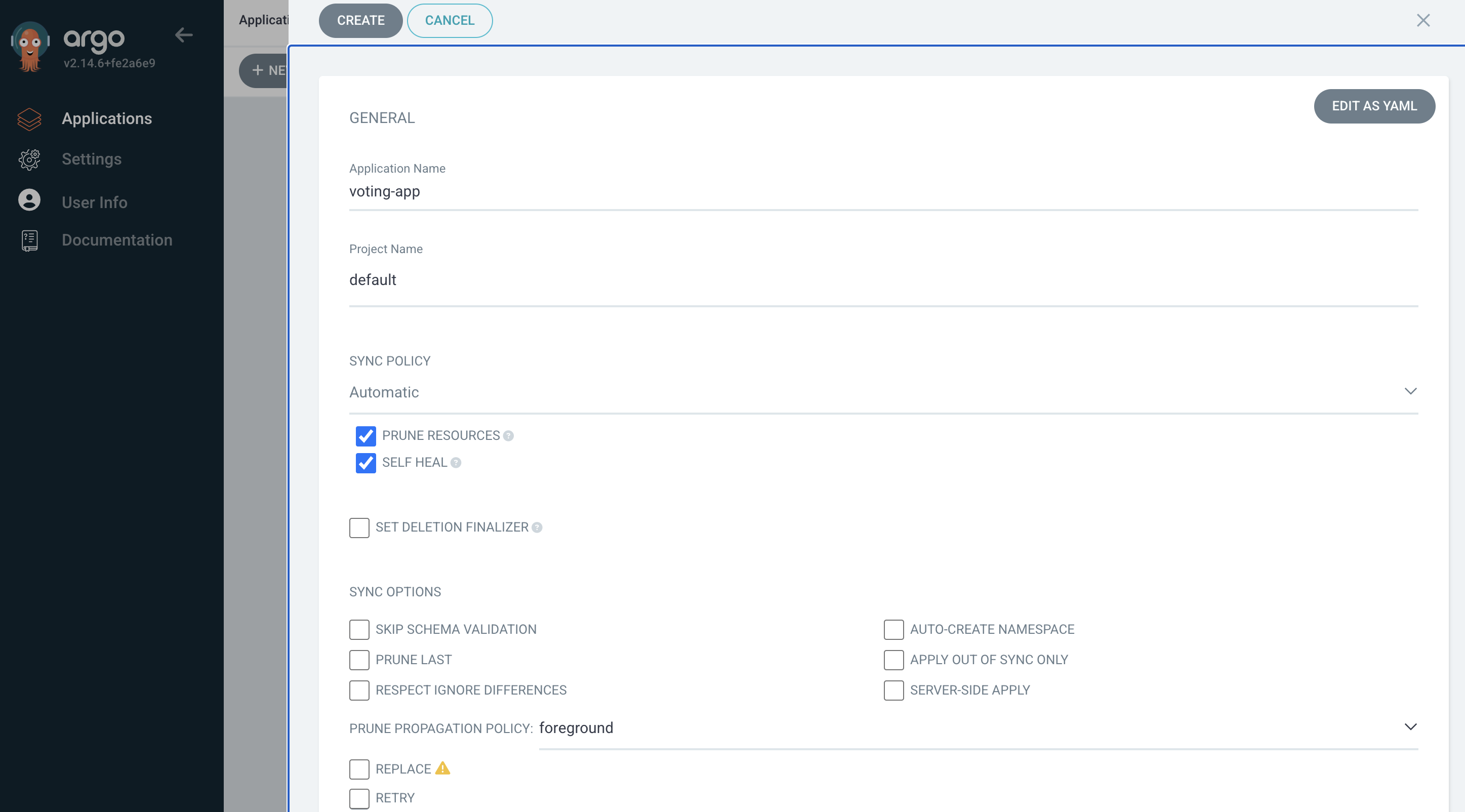
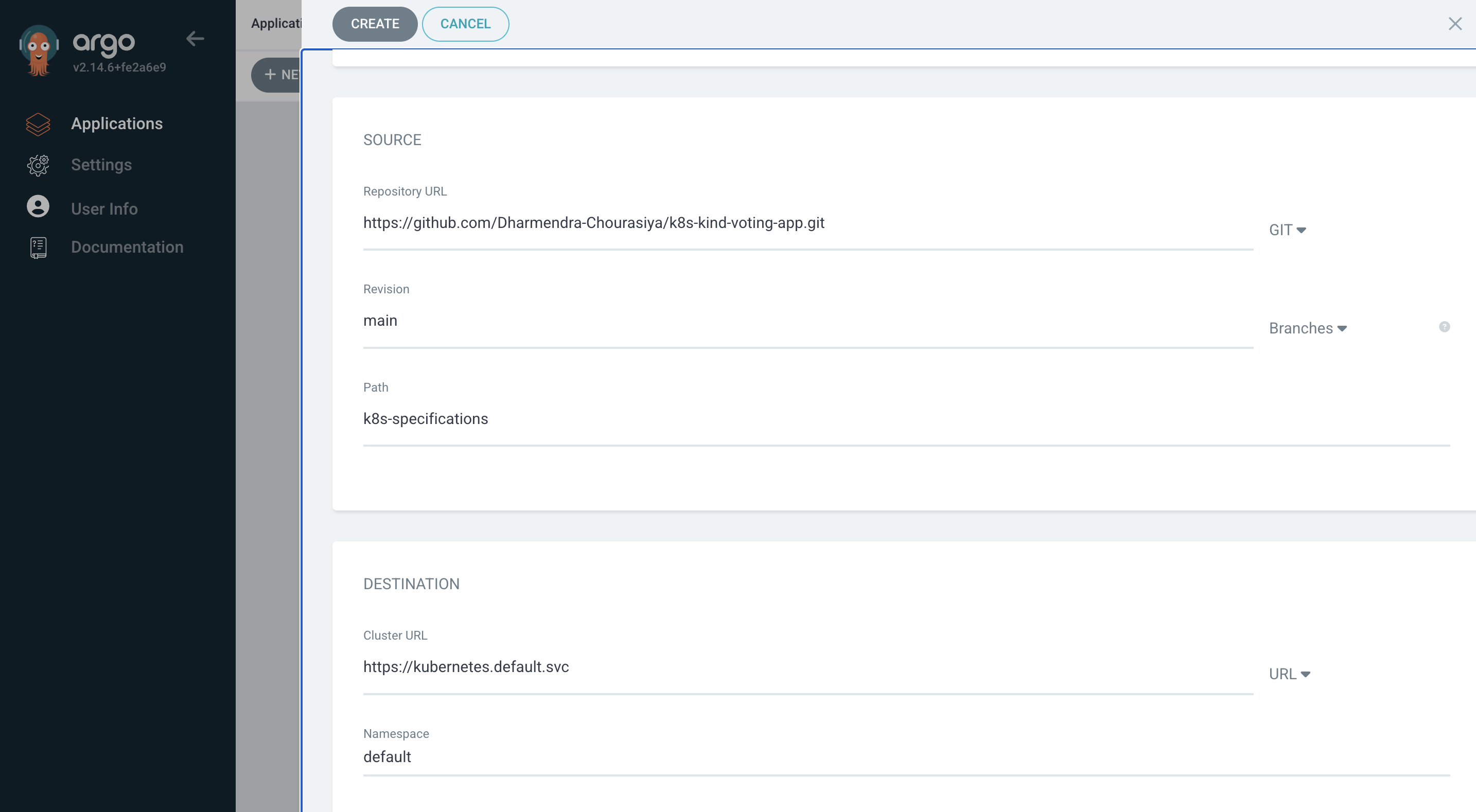
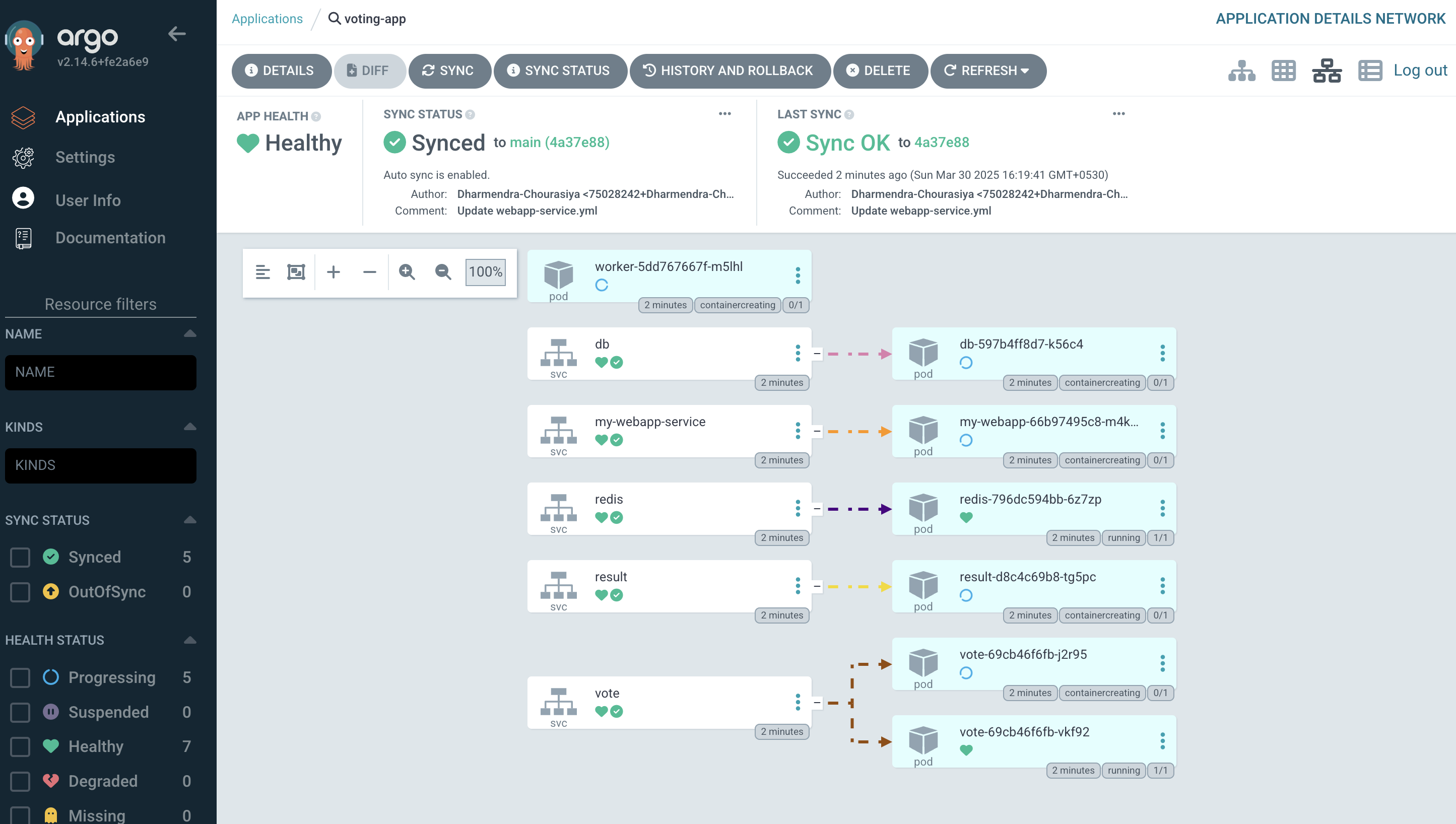
check the port of application using below command
kubectl get svc

Access the application using below command
Forward local ports for accessing the voting and result apps:
kubectl port-forward service/vote 5000:5000 --address=0.0.0.0 &
kubectl port-forward service/result 5001:5001 --address=0.0.0.0 &
http://43.205.114.202:5000/
http://43.205.114.202:5001/
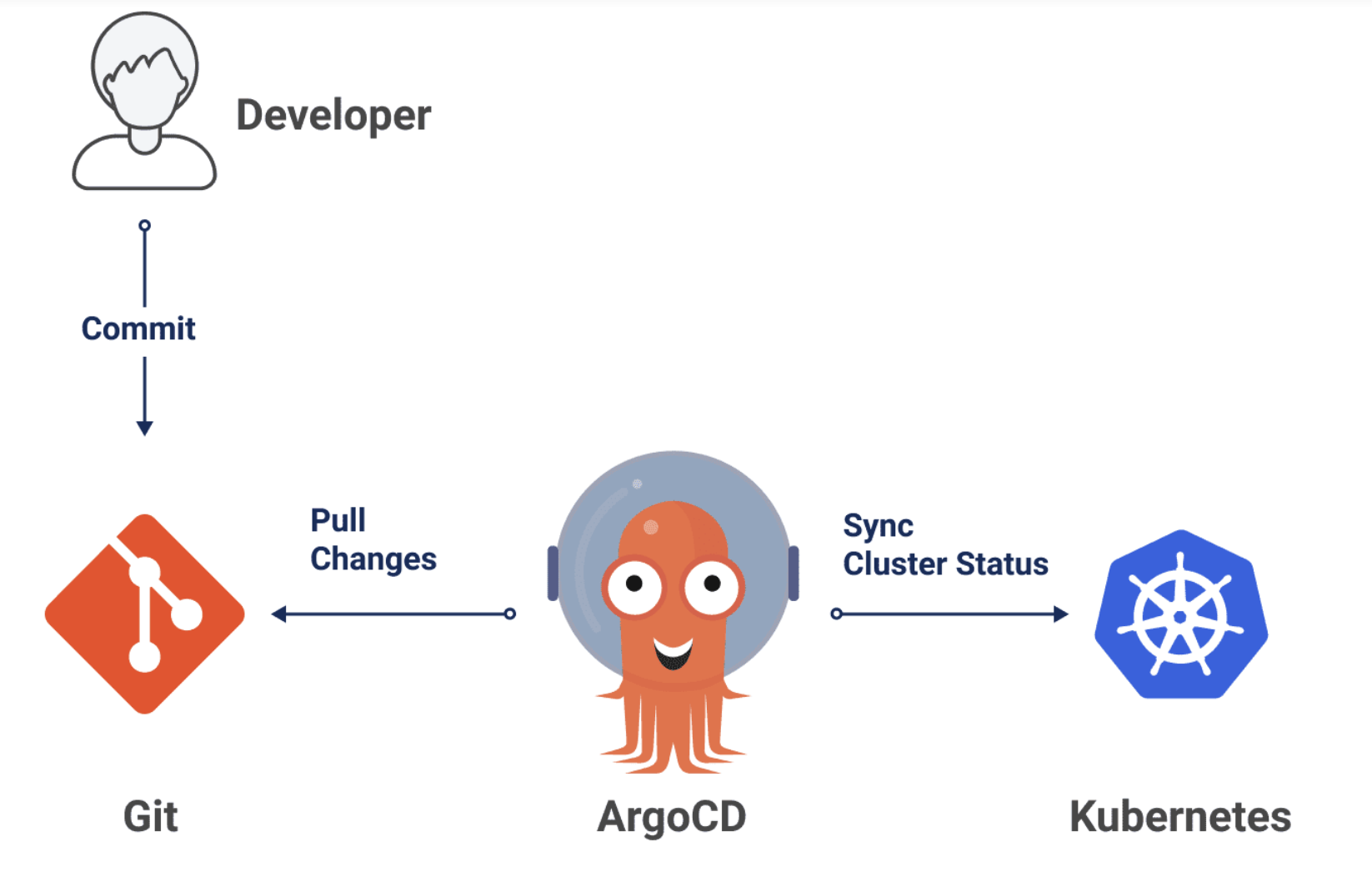
Subscribe to my newsletter
Read articles from Dharmendra Chourasiya directly inside your inbox. Subscribe to the newsletter, and don't miss out.
Written by
